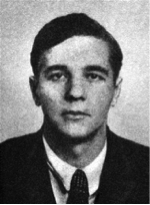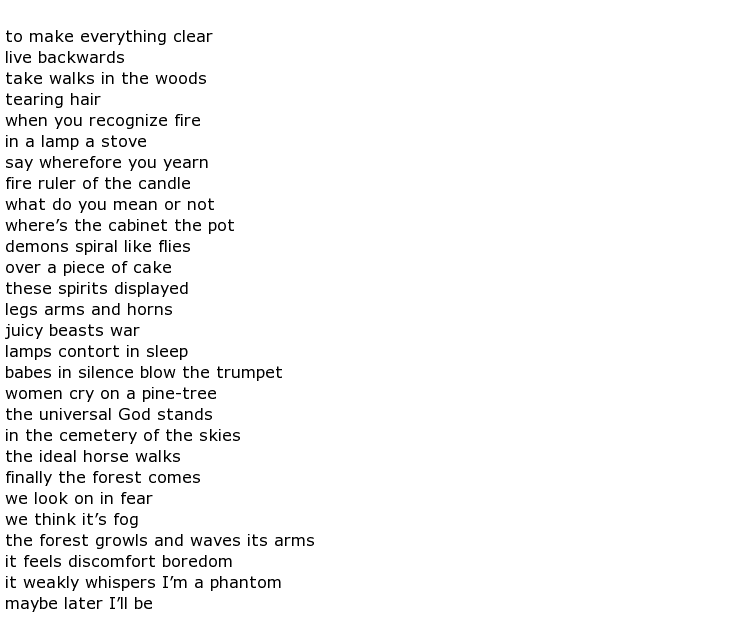 Alexander (Aleksandr) Ivanovich Vvedensky was a radical Russian poet of the first half of the 20th century who belonged to the “Russian Futurism” movement of artists and writers. Their aim was to jettison the “old ways” and the old style of literature in favour of a new direction in keeping with the ever-increasing industrialisation of the country. Vvedensky sought desperately to attach himself to established writers within the movement so that he might learn from them. These were the early days of the Revolution and he was very much a part of this avant garde, or unofficial, trend in art and literature. He has, since his death, become very well regarded for his original style of writing in the Russian language although, during his lifetime, his work was not well known. There was probably just too much fear and suspicion around being seen to be reading something “different” so, inevitably, many of the educated classes tended to stick to traditional literature.
Alexander (Aleksandr) Ivanovich Vvedensky was a radical Russian poet of the first half of the 20th century who belonged to the “Russian Futurism” movement of artists and writers. Their aim was to jettison the “old ways” and the old style of literature in favour of a new direction in keeping with the ever-increasing industrialisation of the country. Vvedensky sought desperately to attach himself to established writers within the movement so that he might learn from them. These were the early days of the Revolution and he was very much a part of this avant garde, or unofficial, trend in art and literature. He has, since his death, become very well regarded for his original style of writing in the Russian language although, during his lifetime, his work was not well known. There was probably just too much fear and suspicion around being seen to be reading something “different” so, inevitably, many of the educated classes tended to stick to traditional literature.
Vvedensky was born sometime during the year 1904 in the great Russian city of St Petersburg. From an early age he was writing and reading poetry and was an admirer of Velemir Khlebnikov. Throughout the 1920s he studied the Futurist movement under the likes of Tufanov and Matiushin while attending a newly created state arts school called GInHuK. He became interested in “sound-poetry” and, as part of the OBERIU group which was formed in 1928, he and other young men toured various entertainment spots in Leningrad performing poetry readings, quickly devised cabaret acts and short plays. Of this group, Vvedensky was considered the most radical.
He needed to make some kind of income of course and had some involvement in children’s literature just to make ends meet. He did some translation of existing books while writing some of his own and, additionally, made contributions of vignettes for publication in children’s magazines. His slightly anti-establishment lifestyle, almost inevitably, attracted the attention of the authorities and he found himself under arrest in 1931 accused of “belonging to a faction of anti-Soviet children’s writers”. He was also accused of hiding anti-Soviet messages in his sound-poetry performances.
He suffered a period of exile for his trouble, in Kursk, but was soon allowed to return to Leningrad. He moved on from there though, to Kharkov, and an incident in September 1941 led to his premature death. People were being packed on to evacuation trains to flee the Nazis but Vvedensky was unsuccessful. To compound being separated from his family he was arrested again, this time for “counterrevolutionary agitation”. The authorities attempted to move him to Kazan on another train but, on the journey, he contracted pleuritis and died.
Understandably due to the chaotic times in which he lived, much of his work was lost although some was preserved, usually secretly, and later published. When a two-volume collection was published in the United States and in Moscow it was described by critics as “idiosyncratic, morbidly humorous, and linguistically innovative”. He is just one of several OBERIU writers who has had his work translated into English and has since reached a wide and appreciative audience. Here’s an example, the first few lines from a long piece called The Meaning of the Sea:

Alexander Ivanovich Vvedensky died in September 1941, aged 37.

